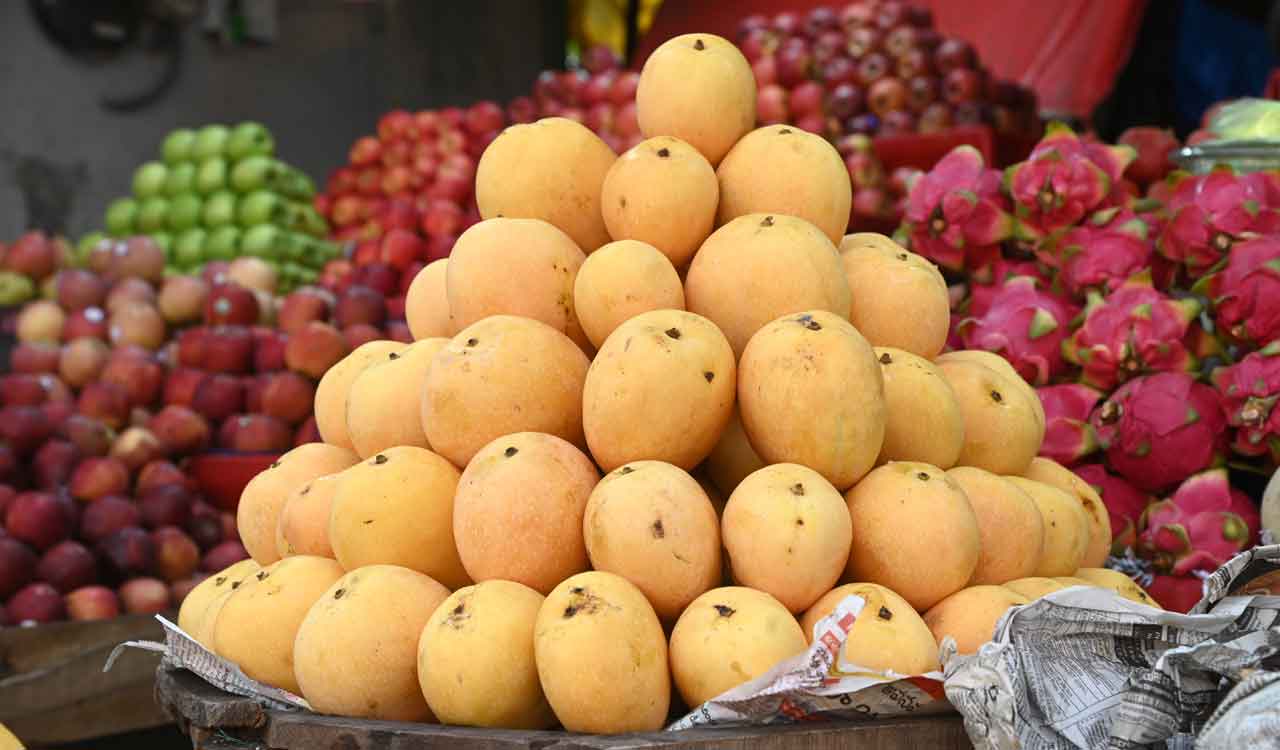Beware of ‘Masala Carbide’: How to identify mangoes artificially ripened by banned carbide

There is always a lingering doubt whether it is even legal to artificially ripen mangoes and how to identify mangos that have been ripened using banned chemicals?
Published Date – 14 April 2025, 03:15 PM

Hyderabad: The mango season has arrived and the struggle to get the right kind of mangoes that are ripened safely has begun. There is always a lingering doubt whether it is even legal to artificially ripen mangoes and how to identify mangos that have been ripened using banned chemicals?
Is it even legal to artificially ripen fruits?
The Food Safety and Standards Authority of India (FSSAI) allows for artificial ripening of fruits. Artificial ripening makes it possible for wholesale fruit merchants to transport unripe mangoes to long distances, as ripe mangoes are soft and perish quickly while travelling long distance. Once unripe mangoes reach the destination market, they can be artificially ripened before sale, FSSAI says.
So are there any safety limits on artificial ripening?
FSSAI has approved the use of ethylene as a source of ripening agent for mangoes and has banned the use of the carcinogenic calcium carbide, the most common and cheaply available ripening agent often called as ‘Masala’, as per the provisions under Food Safety and Standards (Prohibition and Restrictions on Sales) Regulation, 2011.
“Calcium carbide could come in direct contact with fruits during application and leave residues of arsenic and phosphorus on fruits. Thus, the use of this chemical for ripening of fruits is banned in India,” FSSAI advisory said.
The safety limit of ethylene is at a concentration of up to 100 parts per million (ppm) or 100 micro liters of ethylene per liter and it should not come in contact directly with the fruits to be ripened artificially.
Due to easy and cheap availability, traders still continue to use the prohibited calcium carbide to ripen mangoes. Quite often, even traders use ethylene gas in an incorrect manner, like dipping them in ripening agent solutions which may render the fruits unsafe for human consumption.
So what are the precautions for consumers?
• Purchase mangoes from known reputable sellers/stores/dealers
• Traders must have signboards declaring fruits are not ripened by banned chemicals.
• Avoid fruits with black blotches on the skin of the mangoes.
• Do not use mangoes of you find calcium carbide sachets in the fruit box
• Avoid mangoes that appear deep yellow in colour with deep shining or contain a powder-like substance.
• Carbide-ripened mangoes look ripened only from outer surface but remain unripe and tart in taste
• Dip mangoes in cold water for 12 hours and wash properly before consumption, this reduces arsenic content from mango surface/peel/ pulp by 85 to 89 percent






